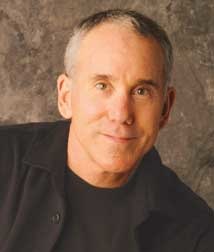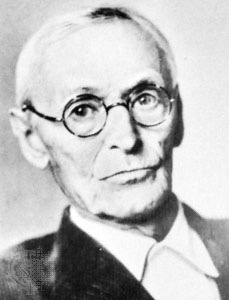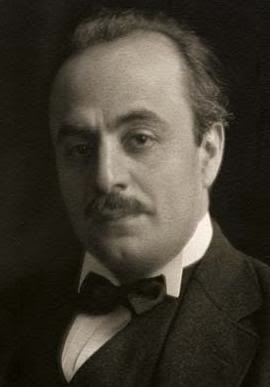Practice

I’m sure that you’ve heard the answer to the question,”How do you get to Carnegie Hall?”
“Practice, practice, practice”
However brilliant and gifted any of us might be, there is always a need to keep our gifts in fine form.
There are few things sadder than wasting our potential.
“Johann Sebastian Bach’s reply to someone praising his extraordinary keyboard prowess;
“There is nothing remarkable about it. All you have to do is hit the right key at the right time and the instrument plays itself. Remember, just practice diligently, and it will go very well. You have five fingers on each hand, just as healthy as mine”.
Without goals, we never make the journey.I’ve generally found more pleasure in the journey than in the arrival.”
–Dan Millman (American Writer, Philosopher and Former World Class Trampolinist, 1947-)
Not Just a Goal, But Also Content

“Every healthy person must have a goal in life and that life must have content.”
–Hermann Hesse (German-born Swiss Novelist, Poet and, in 1946, Winner of the Nobel Prize for Literature, 1877-1962)
To What Do You Aspire?

“To understand the heart and mind of a person, look not at what he has already achieved but what he aspires to.”
–Kahlil Gibran (Lebanese Poet and Philosopher, 1883-1931)
A Rainy Day Question
“Millions long for immortality who do not know what to do on a rainy Sunday afternoon.”—Susan Ertz (a.k.a. J.R. McCrindle, Anglo-American Novelist, 1894-1985)
It is widely known in the scientific community that there has been a great deal of progress on aging research, much of it done behind the closed doors of pharmaceutical companies. According to Professor Tuljapurkar between 2010 and 2030, the modal, or most common, age of death will increase by 20 years if anti-aging therapies come into widespread use. This projected increase is based on some sophisticated modeling, and reflects a life-span growth rate that is five times faster than the current rate. If accurate, this would increase the modal age of death in industrialized countries such as the United States from roughly 80 years to 100.
So back to the question: if you suddenly discovered that you were going to have an extra thirty years of healthy life, what would you do with it?
I really do suggest that you start thinking about that. Assuming that you have enough money to live a decent life, what would you do with that extra twenty years? Would you:
1. Enjoy spending more time with younger members of the family?
2. Learn some new skills?
3. Make new friends?
4. Travel?
5. Read those books you always meant to?
6. Become more involved in spiritual pursuits?
7. Find a new way of serving others?
8. Sit in front of the television?
What plans or aspirations do you have that you want to add to this list?
But then I have another question for you: if your answers included any of the points from 1-7, why not do them right now? What exactly is stopping you from doing all those things today?
Chess and the Mind
I have a confession to make: I have been a life long chess enthusiast, and I can’t start the day without visiting the best chess website on the internet. We are currently almost half way through the second major tournament of the year: the same one at which the incomparable Garry Kasparov announced his retirement last year.
Chess is not just a pastime. There is evidence that it is one of the ways in which we can improve the thinking abilities of young people and prevent the downward slide of our minds as we get older.
In the United Kingdom, studies have shown an astonishing correlation between the academic attainments of schools and the success of their chess teams. Year after year, the schools with the most successful teams send more of their students to top universities, compared with schools that do not play the game or have weak teams. During the Second World War many of the geniuses working at Bletchley Park who cracked the Enigma Code, were outstanding chess players.
For a long time now big business has been recruiting high-level chess players into particular positions that require their unusual skills. It tells you something when you see a major corporation placing advertisements for executives in chess magazines. Chess helps develop memory, concentration, visualization, decision-making, and sharpens our analytical and strategic thinking. It can even help make us more creative and more imaginative. Tournament players have to have a good degree of self-knowledge, and some grasp of psychology is a must. I have won more than one tournament game because of my ability to read the body language and intentions of an opponent. It is no surprise that a good many strong chess players are doing extremely well playing online poker. Chess really is a microcosm of life in general.
“Life is like a game of chess: we draw up a plan; this plan, however, is conditional on what – in chess, our opponent – in life, our fate – will choose to do.” –Arthur Schopenhauer (German Philosopher, 1788-1860)
The chess master Bruce Pandolfini was portrayed – and had a brief cameo – in the film Searching for Bobby Fischer. He has written a nice little book called Every Move Must Have a Purpose, about applying chess strategies in business and life, and next month will see the eagerly awaited publication of a similar book by the master himself, Garry Kasparov.
Here are some principles that I have learned from chess, and that I apply to health, life and business:
- When confronted with any kind of a problem, try to break it down into small manageable chunks, and if you can’t, learn to use and to trust your intuition. (Have a look at my post on Unconscious Processing and Intuition)
- Constantly ask questions: Why is this happening? Is there a pattern here? What does the other person intend? How can I fashion a response that fits and will move things in the direction that I want and is congruent with my overall plan of life? What are the rules here? Can I break the rules? This does not mean cheating, it means being sure that you are not applying rules mechanically, without checking to make sure that they apply in your particular situation.
- Always work to a clear plan. Even if the plan is not correct, it will always be better than the efforts of someone who has no plan at all. It is fine to “go with the flow,” after you have won the game!
- Be constantly on the lookout for opportunities and if there aren’t any, create them!
- As in life, chess demands action. You will succeed at nothing by sitting and waiting for success to come to you.
-
A game of chess, like the game of life demands one move after another. The successful person is one who makes each move to the very best of their ability. As Willard J. Marriott said: “It’s the little things that make the big things possible. Only close attention to the fine details of any operation makes the operation first class.”
-
Have absolute integrity in everything that you do. Be honest with other people and be honest with yourself. If you say that you are going to do something, do it. If you commit to a plan, do not stop until it is complete.
- Coordinate all of your resources. In chess, it is impossible to win unless all the pieces are coordinated. You can destroy everything that you’ve worked for by having a piece adrift on the far side of the board, with nothing to do.
- If you have any weakness, make it your business to convert them into strengths.
- Don’t exceed your own capacity by over-extending yourself.
- Resilience is an extremely important attribute that we all need to develop: things do not always go according to plan, and when they do not, it is important to be able to bounce back quickly.
- Learn not to be over-awed by challenges. Many people defeat themselves with faulty expectations. I once had a trainer who was an extremely fine player. In one tournament he was in with a chance of winning serious money, but in the last round he was drawn against a Russian grandmaster. I saw him before the game: shoulders hunched over, hyperventilating and a scowl on his face. Play began with a variation that my coach and I had analyzed five days earlier, and he had shown me what not to play. In the game against the Russian he played the very move that he had just told me was a critical mistake! He lost in just a few moves. Not because the Russian beat him, but because he beat himself.
“A mountain is composed of tiny grains of earth. The ocean is made up of tiny drops of water. Even so, life is but an endless series of little details, actions, speeches, and thoughts. And the consequences whether good or bad of even the least of them are far-reaching.” — Sri Swami Sivananda (Indian Physician and Spiritual Teacher, 1887-1963)
Technorati tags: chess, life lessons, mind







